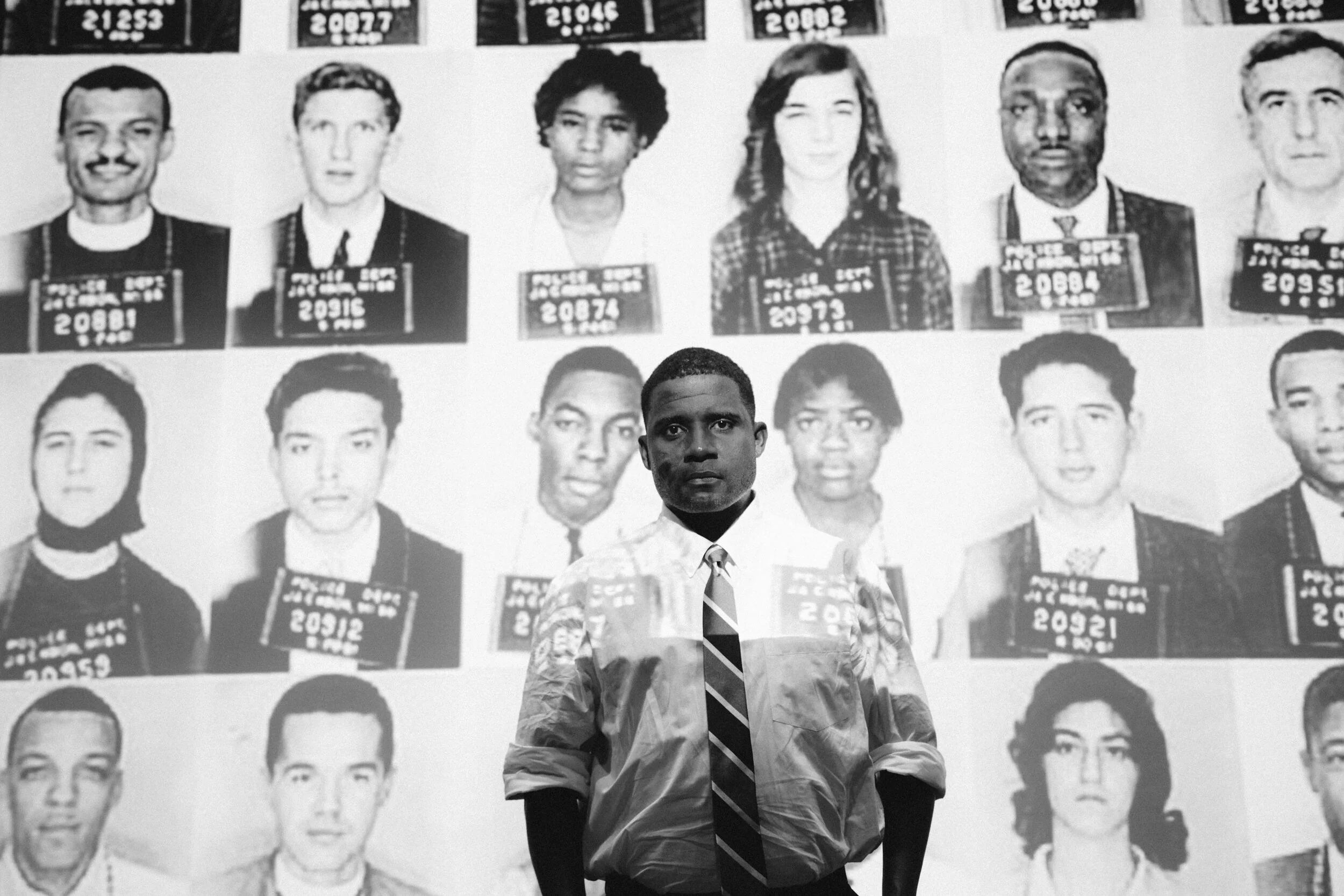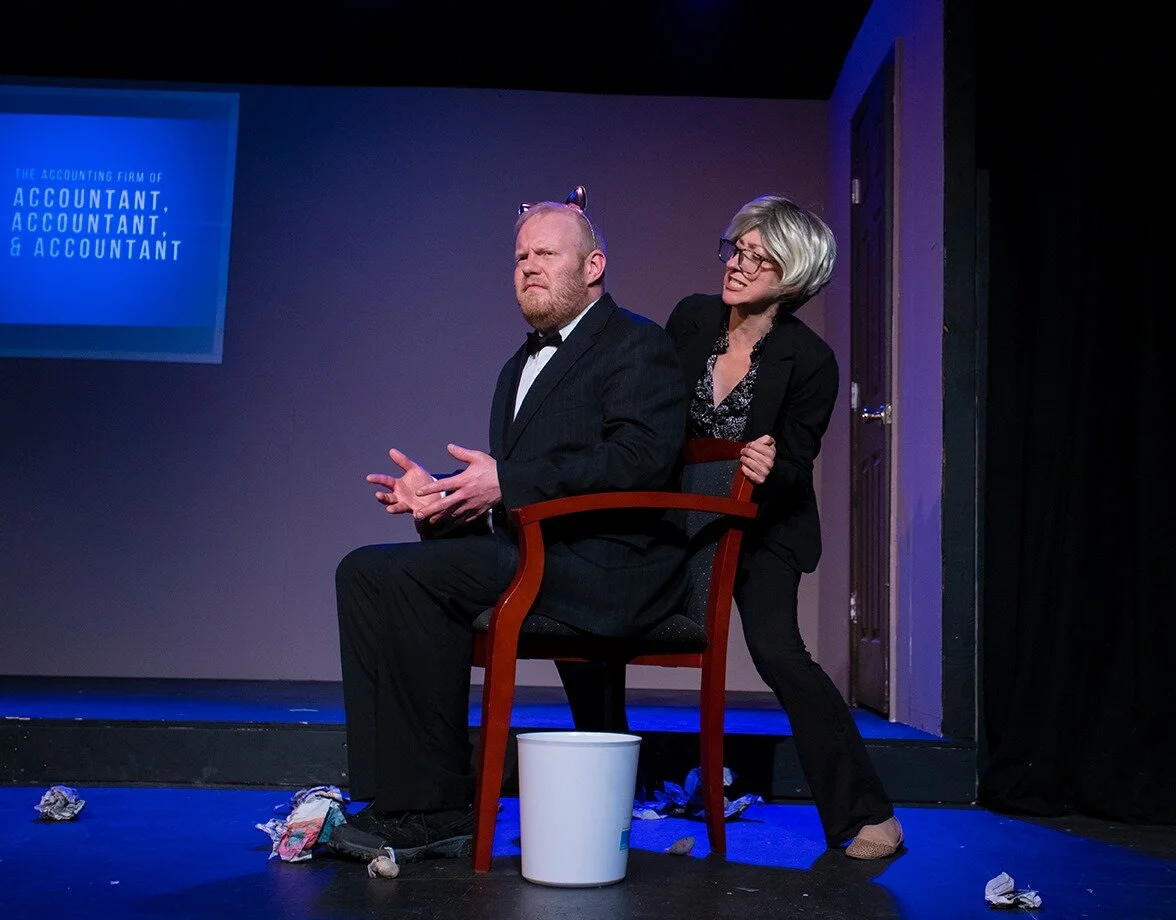Breach of Peace: Stories of the Freedom Riders of 1961
Edwin Arnaudin: It’s strange returning to places I haven’t visited in 18-plus months. We were last at NC Stage on Jan. 29, 2020, for Jeeves Saves the Day, and though the company has produced some impressive Zoom works in the interim, as writer/actor Mike Wiley said, it’s not the same as the live theater setting. What was it like for you during the whole experience of taking in Wiley’s latest one-man play, Breach of Peace: Stories of the Freedom Riders of 1961?
Bruce Steele: It was like getting back together with old friends you haven't seen in a while, even without really knowing the other audience members. NC Stage is an intimate space anyway, so with the company's social distancing protocols in place, it was even more so. In all his one-man "documentary theater" shows, Wiley is closely engaged with his audience, and that connection is heightened here. The May 1961 Freedom Ride is a perfect subject for this talented writer-performer, since it's both specific and emblematic of the larger ongoing Civil Rights battle — at that time and in this time. I learned a lot in just over an hour.
Edwin: The bookend multimedia presentations — essentially new music videos for Childish Gambino’s “This Is America” and Sly & the Family Stone’s “Everyday People" — nicely drive home the connections between the Civil Rights Movement and modern organized equity efforts, particularly the Black Lives Matter movement. I was surprised to hear in Wiley’s post-show talkback that he didn’t learn about the Freedom Riders in school since he’s not much older than I am, and I recall a decent introduction in various U.S. History classes, dating back to fifth grade. (Thank you, Transylvania County education!) His experience is no doubt more widespread than I realize, but his inclusion of famous names like John Lewis and Stokely Carmichael among the primary real-life figures he embodies provides a welcome inroad to this stretch of history.
Bruce: With his remarkable ability to embody and differentiate the voices of different historical figures, Wiley's Lewis and Carmichael are uncannily immediate and nuanced. He also introduces us to James Farmer Jr., a major early Civil Rights leader and author who's too-often overlooked, along with some of the young people riding on the bus, such as Duke student Joan Trumpauer Mulholland and the articulate Tennessee State student Lucretia Collins. Most of these figures share not only stories from the Freedom Ride but also from their formative years, providing a window into what motivated their activism.
I'm glad you mentioned the post-show talkback. For fictional dramas, I tend to skip any post-curtain Q-and-A, to keep the play's fantasy world unsullied in my head, but the bonus content Wiley provided opening night was fascinating and added much to the experience. I hope he keeps it up throughout the run. Of particular interest was his account of how other Civil Rights activists in the early 1960s were dubious about the growing predominance of Martin Luther King Jr., who declined to join the Freedom Ride. I regret I didn't also ask Wiley about the bus driver, portrayed on opening night by a special guest.
Edwin: Talk to my agent! Having seen Wiley’s previous in-person NC Stage show, The Fire of Freedom, I knew there was the chance of being called up. And after registering the scant opening night audience size and our proximity to the stage, those odds skyrocketed. Sure enough, around the halfway mark, Wiley summoned me to join him and promptly gave me a good-natured ribbing for my apparent lack of knowledge regarding the size of a bus steering wheel.
I admittedly had a tough time registering Wiley’s lines while making my NC Stage debut (it’s hot under those lights!), but the rest of the show certainly stuck with me and I likewise learned a great deal. So much work goes into his one-man shows, and every one I’ve seen or am aware of deals directly with racism, so going beyond an hour seems borderline unfathomable for performer and audience alike. Nevertheless, I was somewhat surprised that Breach of Peace ends where it does, though, true to its title, Wiley covers the events of 1961, then bows out.
Bruce: Wiley has versions of this show from a full 120 minutes down to 50 minutes, the edition he performs in schools — including Asheville High School — so I'm guessing he and NC Stage elected for a more succinct version for this first return to live audiences. It's less intense than Wiley's riveting Dar He: The Story of Emmett Till, which he performed at NC Stage Co. in 2018, but no less important in understanding the origins of the ongoing Civil Rights struggle, including the mindsets of many racists (a few of whom he also portrays). While I'd recommend the more visceral experience of seeing Wiley perform the show in person — NC Stage Co. has strict COVID protocols — the ticketed live video option is certainly valid for those wishing to view it from home. In either format, it's both a masterful performance and a compelling historical re-creation. It's certainly a fine way to re-approach live theater in Asheville.
Breach of Peace runs through October 17 at North Carolina Stage Company, 15 Stage Lane, Asheville. For tickets and information, visit NCStage.org.
(Photo: Chris Charles for Creative Silence/courtesy of Mike Wiley)




